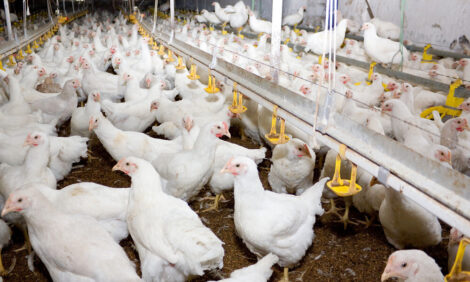



EU goal to move Ukraine by July unlikely, says Poland
Poland needs more mobile grain loadersThe European Union's goal to move 20 million tons of grain out of Ukraine by the end of July is not feasible amid little progress in implementing EU and US initiatives to ease logistics problems, reported Reuters, citing the Polish agriculture minister on Tuesday.
Speaking to Reuters in an interview, Henryk Kowalczyk accused Brussels of giving Poland, which shares a long land border with Ukraine, little assistance, including with factors like a lack of equipment such as mobile grain loaders or containers.
Poland is trying to move Ukrainian grain by rail, because Russia is blocking its ports on the Black Sea which were responsible for the export of over 90% of its cereals and oilseed at a rate of up to six million tonnes a month, prior to the Russian invasion.
But that is difficult because alternative land transport offers a fraction of the capacity that was available directly at Ukraine ports before the war. Border controls and the need to reload trains due to different rail gauge in Ukraine and the EU add to these problems.
Some 20 million tons of grain have to be moved out of the country which was invaded by Russia by the end of next month to make room for this year’s crops and avoid food shortages in Africa, the European Commission said last month, proposing a solidarity lanes initiative to speed up transit.
"At this point the EU target is becoming not realistic. Had we started moving forward in mid-May, it would have been very difficult, but we could have been closer," Kowalczyk said.
An EC spokesperson was not immediately available for comment.
The EU executive proposed to create solidarity lanes to streamline and prioritize the passage of grains via Ukraine borders with the EU neighbors.
The plan included specific action points calling for pooling of rail cars and logistics equipment by member states to boost grain shipments.
Kowalczyk said that besides declarations, Poland received no tangible assistance from the bloc.
Warsaw declared it could move up to 1.5 million tons of grains per month but even this estimate was a challenge amid scarce storage capacity, lethargic cargo traffic, insufficient rail fleet and missing equipment to reload grain.
"I keep appealing on and on, we need mobile grain loaders... They should be placed at the borders or at reloading points where wide gauge ends... Also containers, which allow for swift trans-shipment at the borders and in ports," Kowalczyk said.
Mobile grain-loaders can load over 200 tons of grain per hour. Production of such equipment is scarce in the EU and temporary rental contracts should be explored, the EU said.
"We are waiting, but I know the European Commission is asking member states individually for declarations of help and it is moving slowly unfortunately," he said.
In June, US President Joe Biden said that temporary silos would be built along the borders with Ukraine, including in Poland, in a bid to help the export of more grain from the war-torn country and address a growing global food crisis.
Grain would be transferred from railway cars into silos and then on to European freight cars in a plan aimed at preventing Russia from stealing Ukrainian grain and making sure the country's winter harvest is not lost due to a lack of storage. Kowalczyk said the Biden proposal was interesting but lacked details including a timetable. Poland would expect the US to finance the plan, while Poland could select locations in proximity to wide gauge tracks, he said. One rail line from Ukraine extends by 400 km into southern Poland.
"It is too early to talk about a timetable for this plan at this stage. This was a political declaration, let's be clear, and has to be followed by specific agreements; talks (with US Department of Agriculture) are underway," Kowalczyk said.









